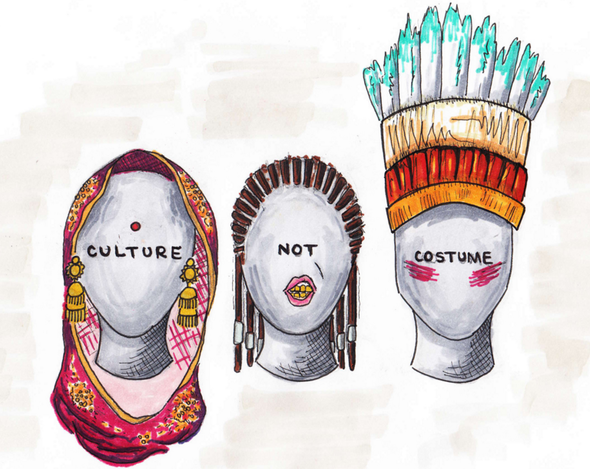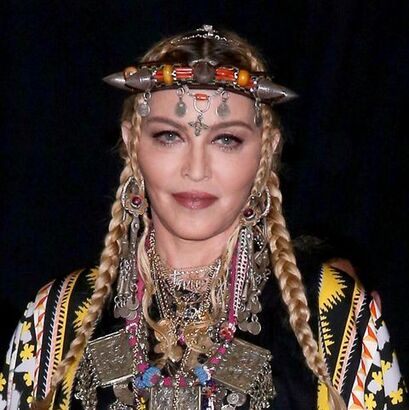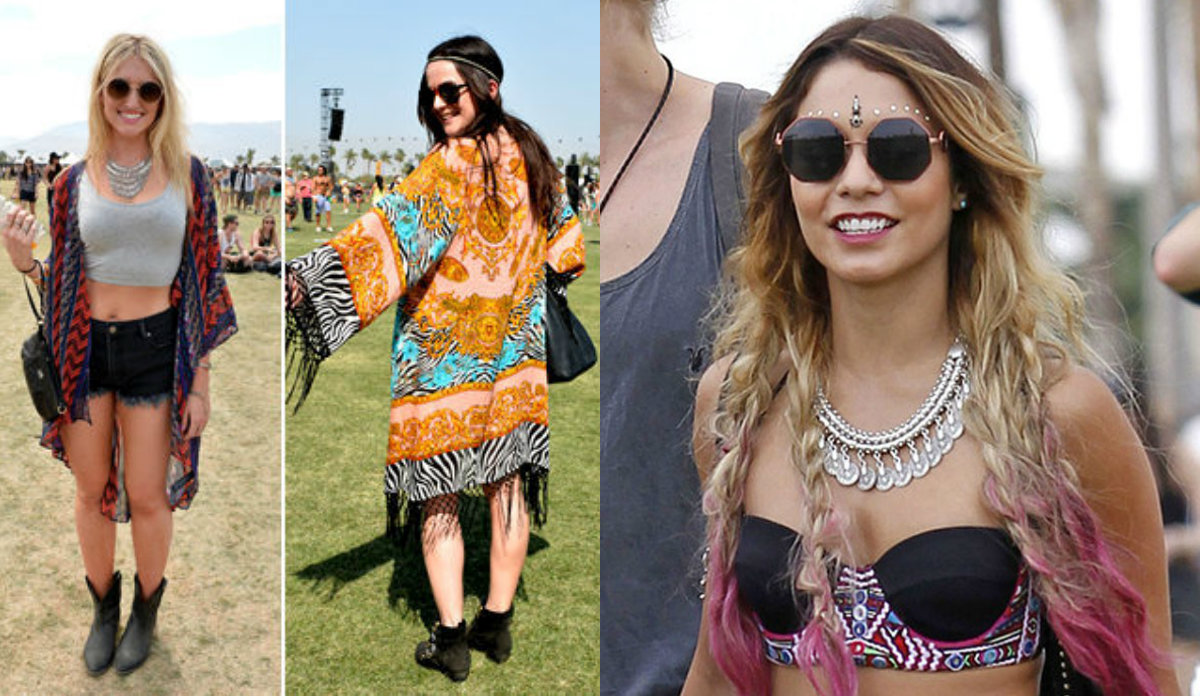|
September 20, 2020 / Source: The Bizz USA By Elizabeth Insuasti; Edited by Adya Kumar and Haarika Kalahasti Cultural appropriation is becoming a popular topic of discussion in the media. Time and time again, cultural appropriation is seen with the Jenners and Kardashians appropriating box braids, models wearing ethnic headdresses, and the latest “fox eye” trend taking pop culture by storm and creating a backlash from the Asian community. However, Cultural appropriation isn’t new. Some are even trying to justify their actions with the term “cultural appreciation”. Is there a line that must be drawn between the two? According to Dictionary.com, cultural appropriation is “the adoption or co-opting, usually without acknowledgment, of cultural identity markers associated with or originating in minority communities by people or communities with relatively privileged status.” To understand this, let’s examine the fox eye trend. The fox eye trend is a pose in which models pull their eyes back to make them appear slanted upward, and therefore, appear “foxy”. This pose has become so popularized that some celebrities have even gotten cosmetic surgery to have their eyes and brows appear slanted. Photos of these surgically enhanced faces, generally of Caucasian models and influencers, are all over Youtube, Tik Tok, and Instagram. This trend, however, is harmful and offensive to the Asians. Marisa Charoensri, an environmentalist and scholar of environmental and health policies, says, “As an Asian-American, I personally find the ‘fox eye’ trend insensitive and problematic. While I understand it may not have originated from a place of ill intent, it doesn’t excuse the ignorance involved here. I grew up feeling like an ugly duckling and believing my features weren’t beautiful. People used to mock mine and yell out 'ching chang chong,' and it became so normalized that I didn’t find it funny. It made me rather insecure. You can’t just turn something us Asians have been ridiculed over for pretty much our whole lives into a beauty trend or selfie pose.”
So, what is cultural appreciation? A significant example of this is in Japan, where there is a Chicano subculture rising. Chicano is an “identifier for people of Mexican descent born in the United States. The term came into popular use by Mexican Americans as a symbol of pride during the Chicano Movement of the 1960s.” Walter Thompson-Hernandez traveled from the United States to Japan to learn more from this community and see if the subculture was an example of cultural appropriation or appreciation. When he got to Japan and spoke with the Japanese people who were taking part in Chicano culture, he was utterly shocked. “They are in constant communication with Los Angeles lowrider communities. To me, it was more of a form of cultural exchange. Although many people I met in the scene were born and raised in Japan, they pride themselves on appreciating lowrider culture.” They were not profiting off of Chicano culture nor mocking it--they had an understanding of the culture. It is more than a “fashion trend”, and is rather a way of life. The Japanese people who take part in Chicano culture are respectful and rooted in the similarities between both Japanese and Latinx cultures and family values. Vivian Wang, a writer for Latinx magazine, says, “I admire the way Japan is adopting and celebrating Latinx culture: not only admiring the styles and practices of being a Chicano but taking the time to fully understand how the culture works too. Japan is forging a fusion that follows cultural practices in a manner that is respectful and at the same time, fun."
But where is the line drawn? Cultural appropriation takes away the meaning of specific cultures and may objectify or stereotype the offended culture. This can mean wearing “accessories” as a fashion statement or trend, like box braids. Kylie Jenner often wears box braids and continues on scot-free. But, when a black woman wears box braids, she faces institutional racism and barriers discouraging her to wear her hair however she wants. Cultural appreciation is when there is an exchange of cultural practices--when people take time to learn about the roots of their cultural practices, clothing, and accessories. Cultural appreciation is all about listening, not plagiarizing, and honoring where a piece of clothing comes from or honoring a community as a whole. Cultural appreciation also amplifies the voices of different BIPOC communities by bringing awareness rather than doing something for personal gain or money. While I agree that equality is important and it’s alright to share our cultures, we have to remind ourselves that we live in a world full of systematic oppression. Eurocentric beauty ideals, racial inequality, and forced assimilation are heavily rooted and engraved in the United States of America. Many BIPOCs continue to conform to white culture to survive, be able to work in the workforce, and not be bullied in school for the way we look or dress. Cultural appropriation vs appreciation can be hard to understand, but ignorance is definitely not the answer. We have to ask ourselves the right questions and learn from one another. So before you put on an article of clothing or try the next “big trend” on social media, keep an open mind, think about where it comes from, and if it’s the right thing to do.
1 Comment
|
Our WritersHaarika Kalahasti Archives
September 2021
Categories |





 RSS Feed
RSS Feed